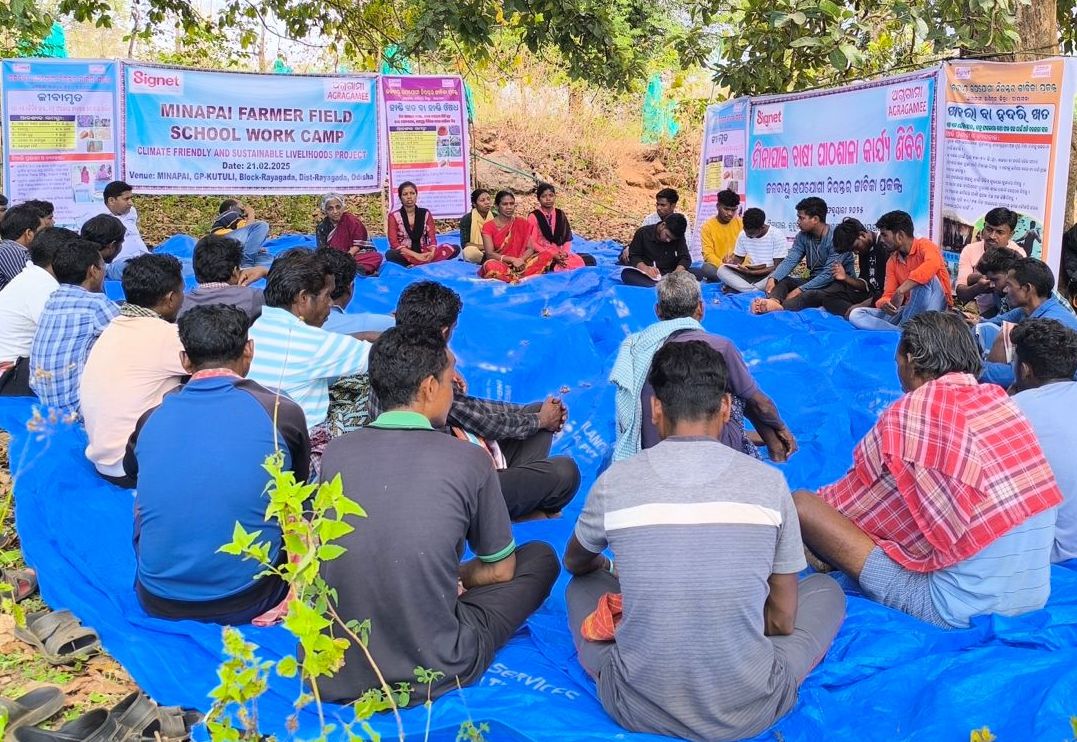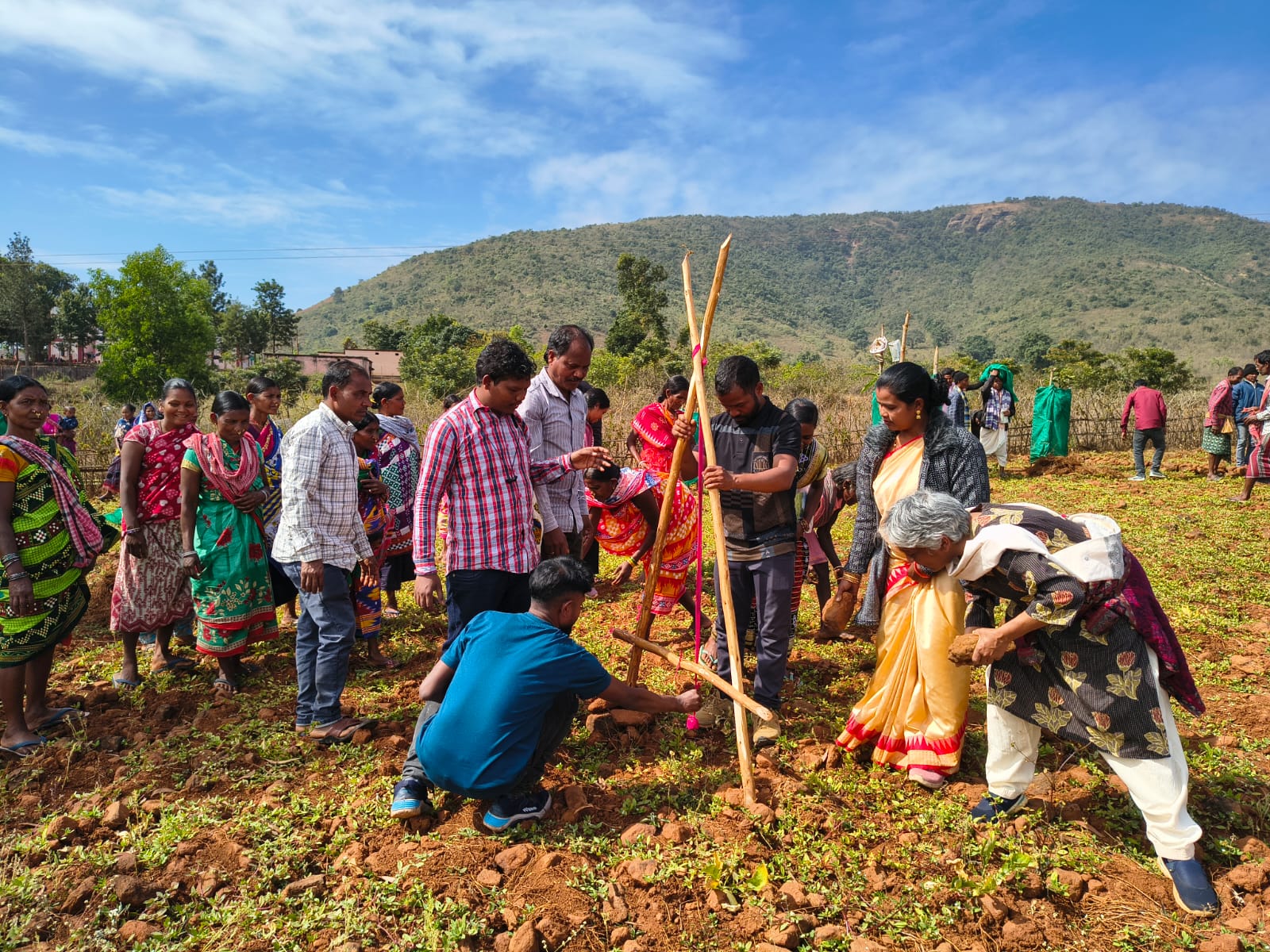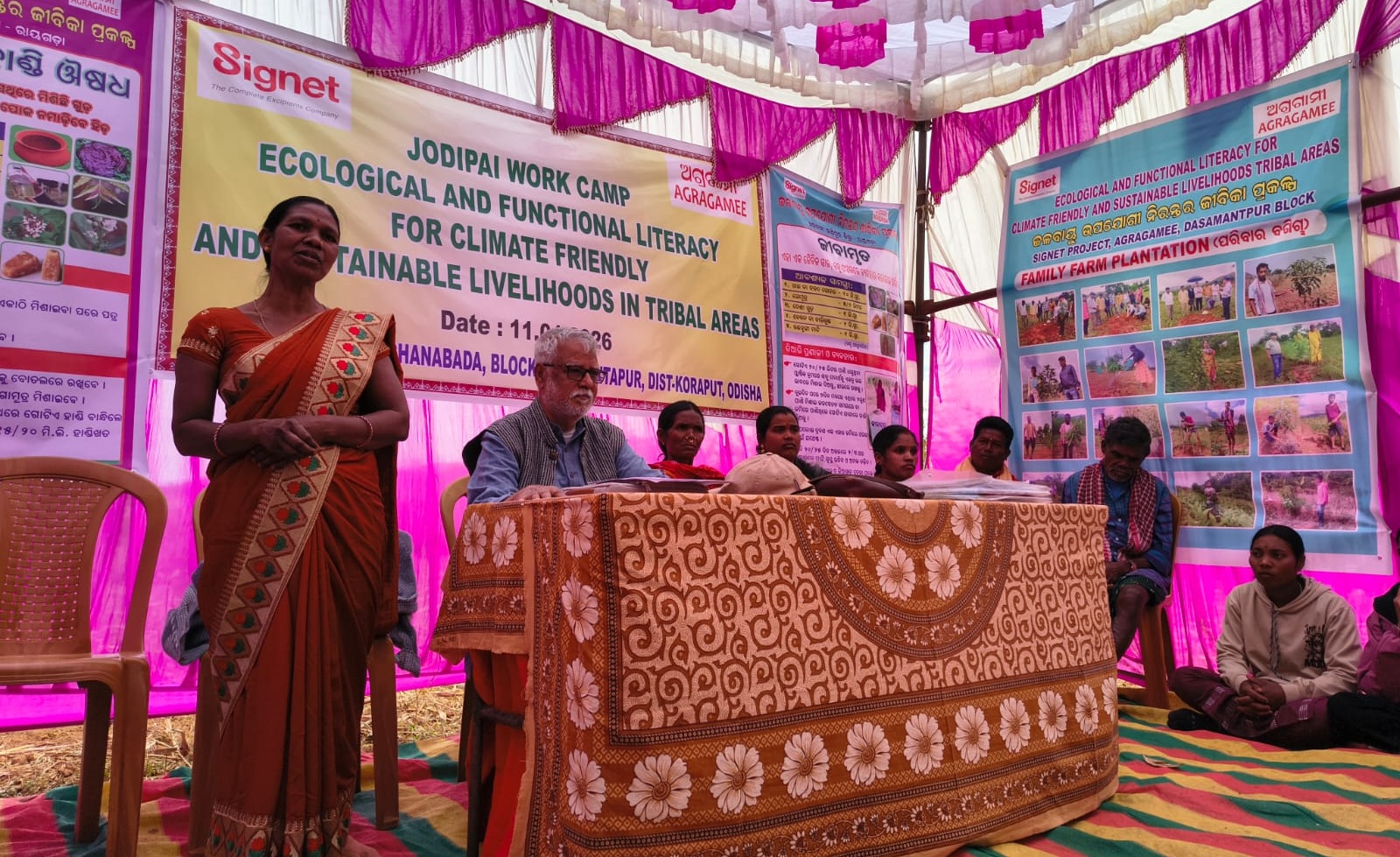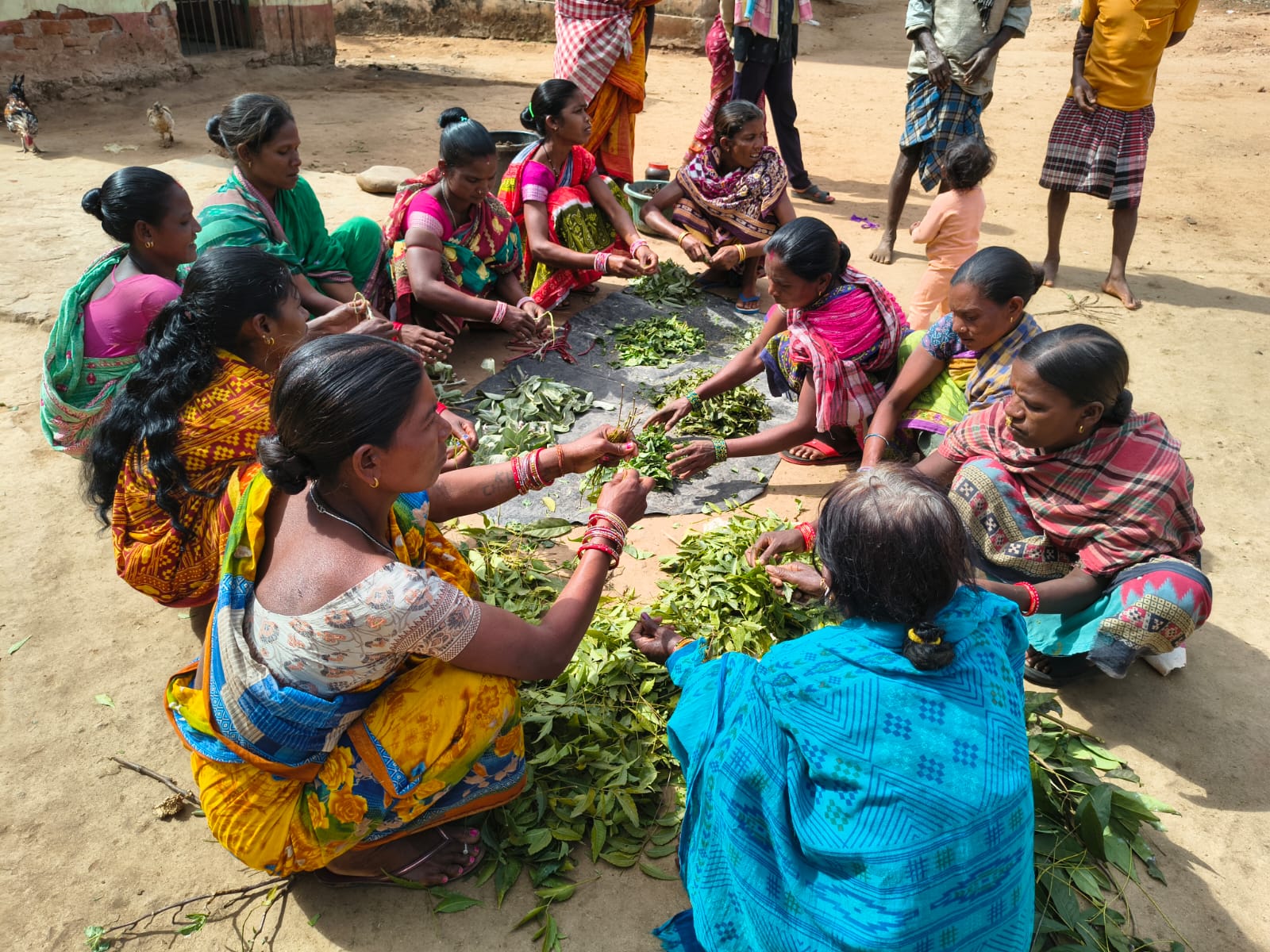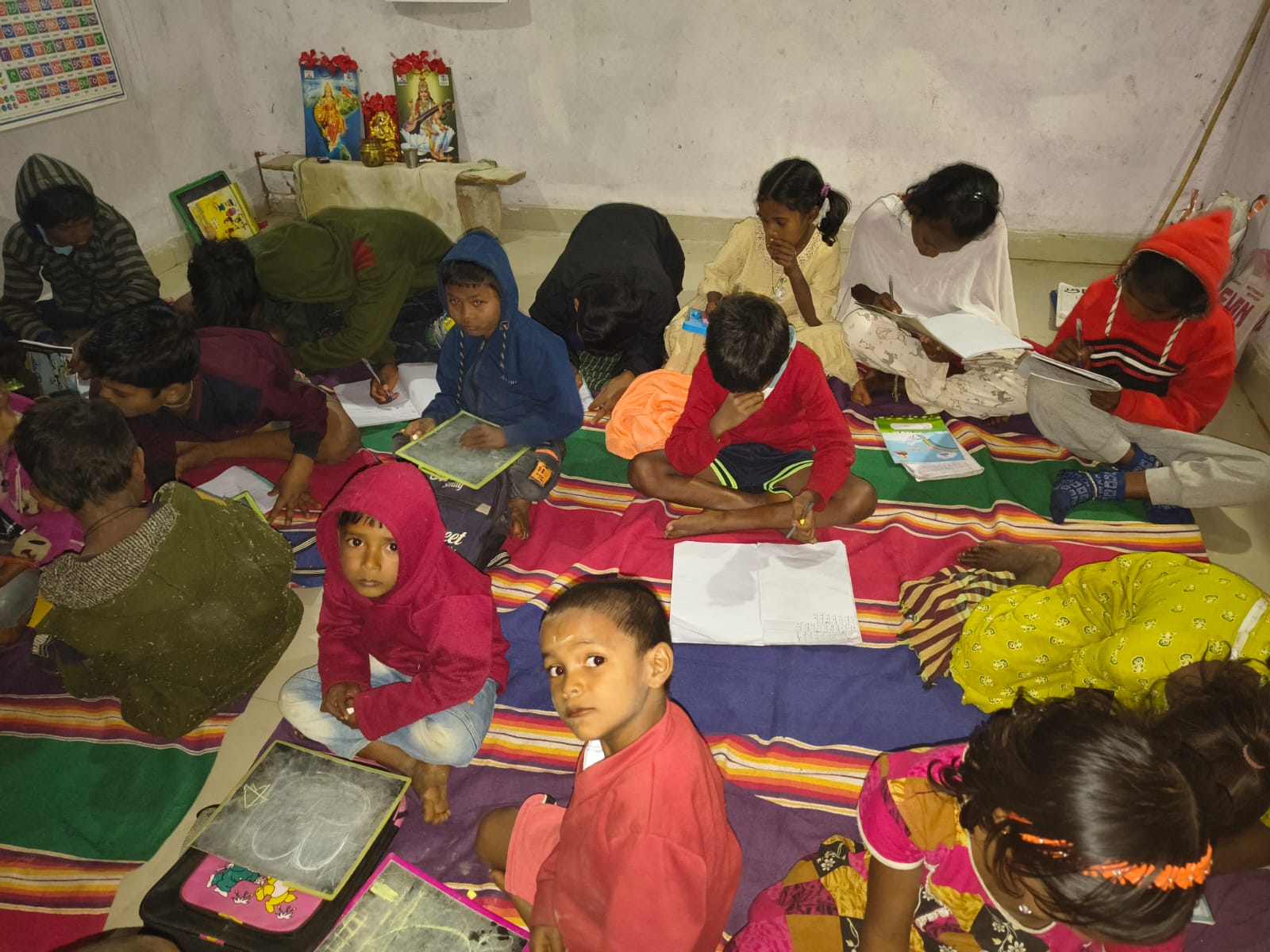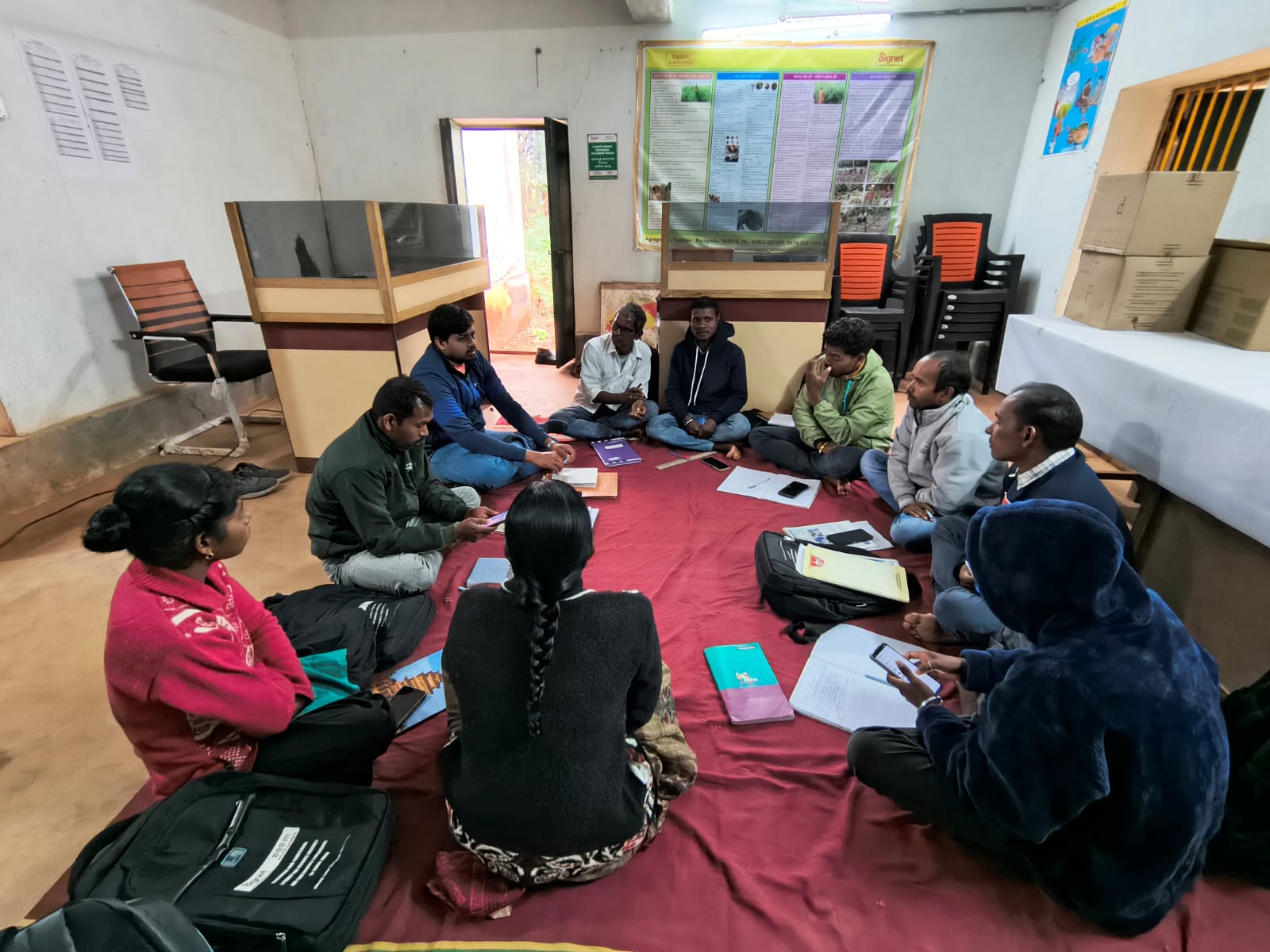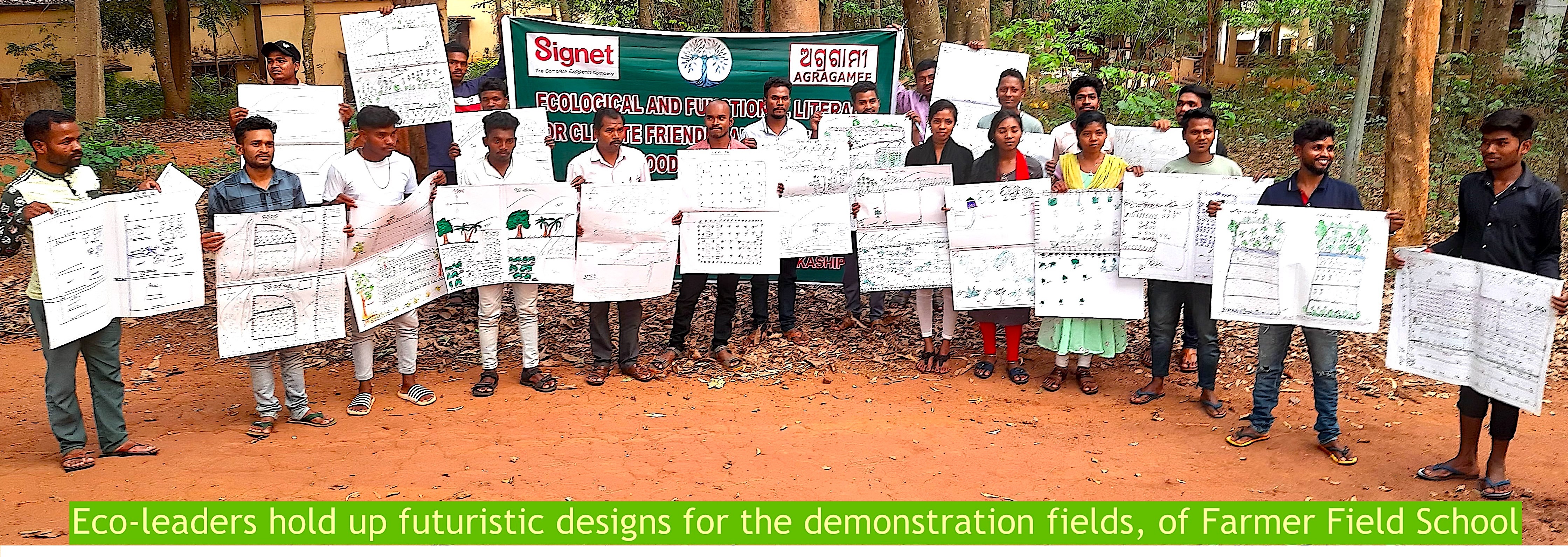
Ecological and Functional Literacy For Climate Friendly and Sustainable Livelihoods in Tribal Areas
The project “Ecological and Functional Literacy for Climate Friendly and Sustainable livelihoods in Tribal Areas” is a first of its kind, that integrates livelihood support with climate resilience by introducing climate friendly agricultural practices for poor and marginal farmers, and combines all this with clearly defined elements of quality education and literacy. It thus enables the tribal community take definitive steps towards self-reliance and sustainability in a literate and informed manner. The project is funded under the CSR initiative of Signet Excipients Private Limited and is taken up in some of the poorest and lowest literacy districts of Odihsa.
Agriculture is one of the major reasons for climate change. The current effort encourages tribal farmers to reclaim their baren agricultural lands as family farms wherein they integrate perennial high value food crops with annuals including table yams like elephant foot yam, tapioca and white yam, spices like ginger and turmeric, and seasonal crops of cereals, vegetables and pulses. It provides a climate friendly package of practices by encouraging the following:
Perennial fruit trees to trap and store atmospheric carbon.
Zero-till cultivation which helps in carbon sequestration.
Organic agriculture, reducing fertilizer application and the release greenhouse gasses from the soil.
Reduces Mechanisation and thereby the burning of fossil fuels which are also a major source of greenhouse gasses.
Greening of Agricultural Wastelands which contributes significantly to addressing the causes of climate change.
Green fencing which enhances the family farm ecosystem in many ways. .
The project seeks to equip youth to address the problems of land degradation and help farmers improve their livelihoods through integrated and climate resilient family farms. The four major pillars of the project are:
Youth: Capacity building as eco-leaders to show the way for climate friendly and sustainable agriculture.
Farmer Field Schools: To help farmers learn eco-friendly practices through demonstration and field camps.
Family farms: Support to farmers to reclaim barren agricultural wastelands and improve their land management for income and food security.
Learning Centres: To enhance learning levels of school going and school age drop outs, and help them catch up with their studies.
Agragamee’s Model Ecological Farm in Kashipur demonstrates and provides hands on training on the different aspects of farming. The key demonstrations are ecological agriculture with minimum soil disturbance or zero-till, a method that helps to rejuvenate the soil and sequester carbon, integrated and multi-tier plantations, preparation of herbal fertilizers and pesticides and in-situ composting. The effort is to show the way through examples and education.
The project covers a significant area of 131 villages in the three blocks of Kashipur, Rayagada, Dasamantapur Blocks in Rayagada and Koraput districts, reaching out to more than 1200 farmers.
Coverage under the Project:
| Particulars of Project Data | Kashipur Block | Rayagada Block | Dasmantapur Block | Total |
|---|---|---|---|---|
| No of Villages | 51 | 23 | 57 | 131 |
| No of GPs Covered | 11 | 4 | 7 | 22 |
| No of Farmers Selected | 469 | 226 | 551 | 1246 |
| No of Eco Leader Trained | 12 | 6 | 12 | 30 |


